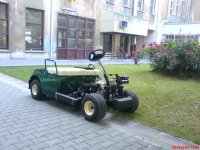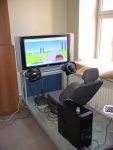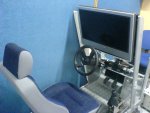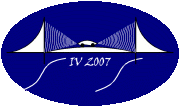

IEEE Intelligent Vehicles Symposium 2007
Istanbul, Turkey, June 13-15, 2007
MEKAR Labs and AUTOCOM Center

The Mechatronics Research Labs in the Department of Mechanical Engineering at Istanbul Technical University called ITU Mekar have evolved from a small research lab founded in 1997 and have now become several labs with six faculty members, two post-doctoral researchers and twenty graduate students. Our name MEKAR is an abbreviation for both Mechatronics Research and Mechatronic Vehicle in Turkish; respectively Mekatronik Araştırmaları and Mekatronik Araç.

Faculty members from two other leading Turkish universities work at the center. Automotive controls research has been going on in the ITU Mekar labs since 2001. In 2004, these research efforts were rewarded by the EU FP6 INCO program with the establishment of the Automotive Control and Mechatronics Research Center (Autocom) as a Center of Excellence in Turkey. The Autocom center has three main thrust areas of research: 1) preventive and active safety, 2) powertrain modeling control and HiL simulation and 3) hybrid electric vehicle modeling and control. The main research sponsor of the Autocom center is the Turkish automotive industry. Two big projects on global chassis control of a light commercial vehicle and hybrid electric commercial vehicle development were completed successfully as a result of the collaboration with industry. Two members of the center are the recipients of the prestigious Tubitak Career Awards. Faculty members at the center have taken instrumental roles in the organization of the Workshop in Preventive and Active Safety Control in 2005, the International Conference on Automotive Technologies in 2004 and 2006, the Workshop on Powertrain Modeling, Control and HiL Simulation in 2006, the Workshop on Hybrid Electric Vehicle Modeling and Control in 2007 and the IEEE Intelligent Vehicles Symposium in 2007. The center has close collaboration with partners in Europe and the US including short and long term exchanges of students and faculty.

Previous experience and expertise in the Preventive and Active Safety Area includes: collision warning and avoidance, rollover risk determination and warning, rollover avoidance, vehicle instrumentation, vehicle dynamics model development, simulation and parameter identification, home built hardware in the loop simulators for testing vehicle dynamics controllers and warning systems, adaptive cruise control and stop and go control development, yaw stability control (ESP), semi-active and active suspension control, driver modeling, driver inattention monitoring based on driving signals, steering control, autonomous driving and automated parking.




